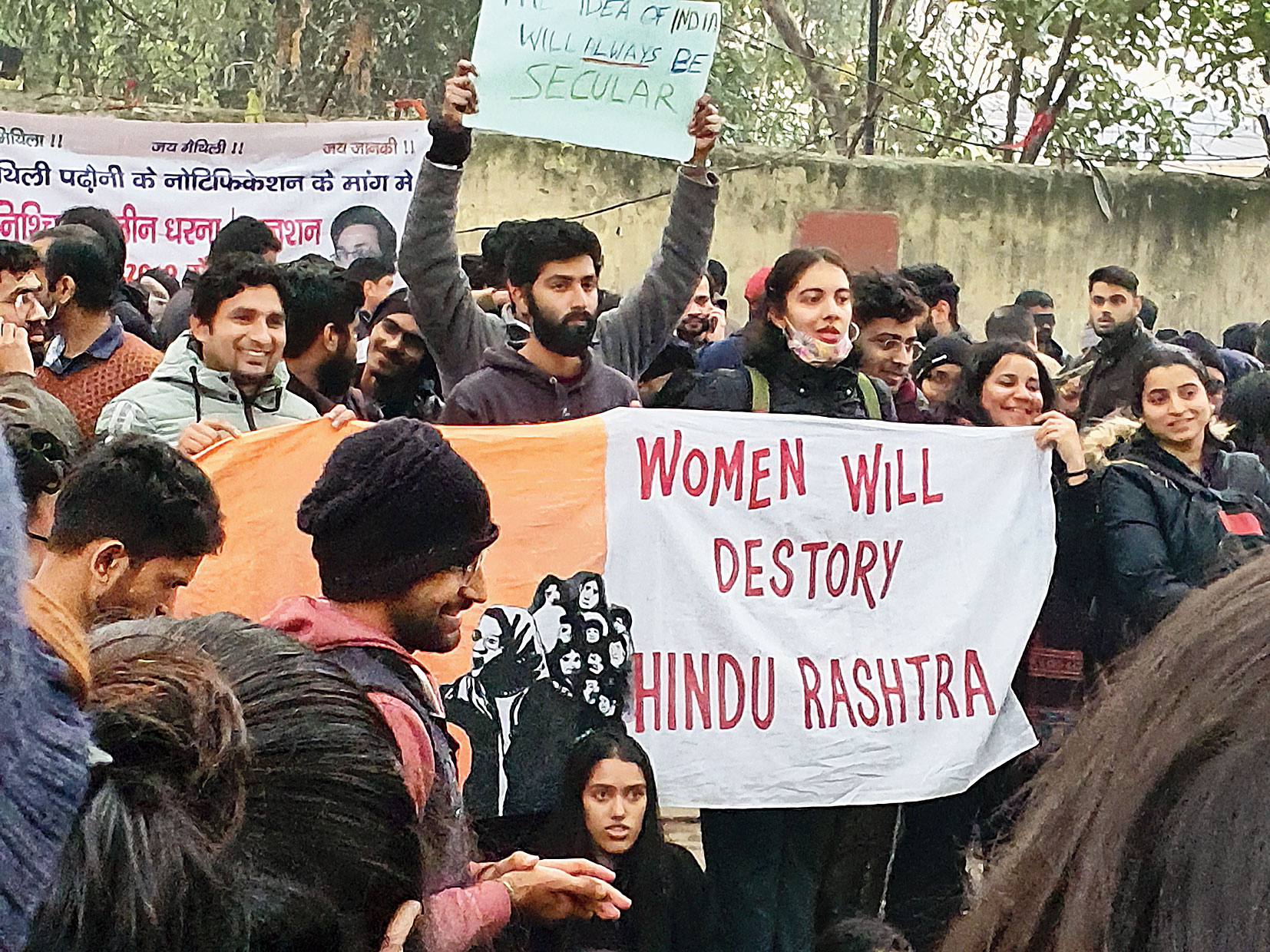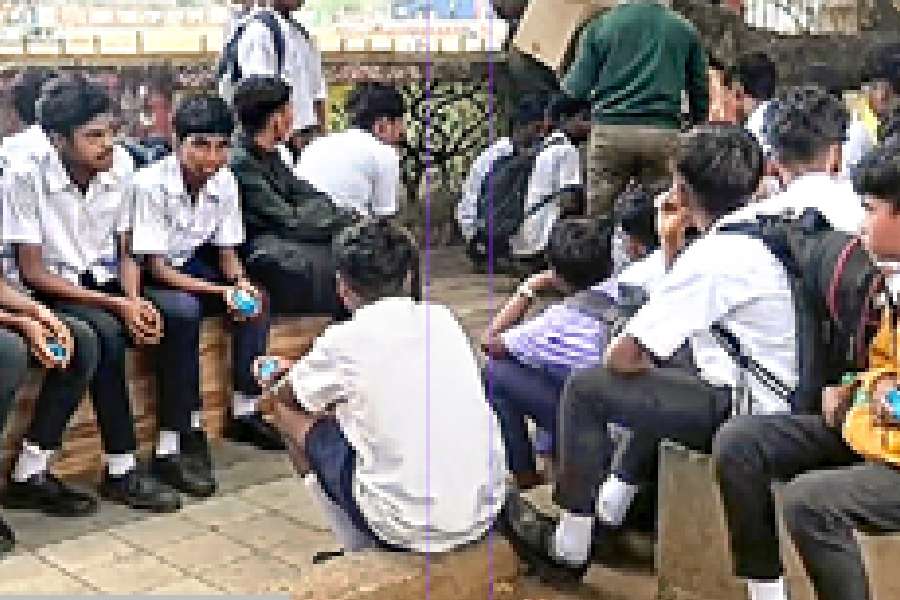A students’ group campaigning against “evening curfews” imposed by women’s hostels joined the protests against the Citizenship (Amendment) Act and the National Register of Citizenship on Thursday, saying they represent an ideology detrimental to women’s interests.
Dozens of student-members of Pinjara Tod, or Break the Cage, joined hundreds of students and others who had congregated near Jantar Mantar, the national capital’s prime site of protests, holding banners and shouting slogans against the CAA passed by Parliament last week.
The CAA will facilitate non-Muslims from Afghanistan, Bangladesh and Pakistan an expedited path to citizenship and the NRC is intended to weed out non-citizens living in India. Both moves have drawn criticism from sections of students, faculty and civil society with many interpreting them as steps towards a “Hindu Rashtra”.
“The CAA and the NRC come from the same Hindutva ideology that also poses a threat to women’s autonomy and even to women themselves,” said a postgraduate student from a central university in New Delhi and a member of Pinjara Tod at the protests at Jantar Mantar.
Her fellow Pinjara Tod members had taken up a small section of the sidewalk, some held a banner that said “Women will destroy Hindu Rashtra”, while the others shouted “Freedom” and “We will not tolerate (injustice)”.
Residents of university women’s hostels in New Delhi had launched the Pinjara Tod group in 2015 in response to what they said were unreasonable restrictions on the movement of women in hostels. Wardens in some hostels expected the residents to return and stay in their hostel rooms by 8pm, while no such restrictions applied to boys’ hostels.
The resistance to evening curfew in hostels originated in Delhi but has drawn members from several other states.
“Our campaign started out against regulations against women’s mobility — we’re here now to resist something similar, something that divides society and divides even women,” another member of Pinjara Tod said.
“The Hindu ideal of a woman is either a deity or a Goddess, or a mother to be revered — and all women who don’t conform to certain ideals are the other women,” she said.
Sections of social scientists and historians have long shared concerns that the Hindutva ideology espouses the superiority of men over women and promotes traditions, rituals and myths that subordinate women.
“In general, most conservative Right-wing movements, including the Hindutva ideology, are inherently patriarchal and undermine women’s rights and women’s welfare,” said Vishwamohan Jha, a historian at the University of Delhi.
Such movements often mobilise women themselves willing to promote certain causes but only to perpetuate the patriarchal ideology, Jha said.
A Hyderabad-based communications specialist, Akhileshwari Ramagoud, had in a commentary on the threat Hindutva poses to women published on the website countercurrents.org in October 2018 written that Hindutva has perfected an extremely insidious site of patriarchy: “Use women to enslave women, so that they will replicate and reproduce the Manu-ordained prototype of the female slave…. In short, women should be, at all times, at the mercy of the all-powerful males of the family and society and rulers….”










